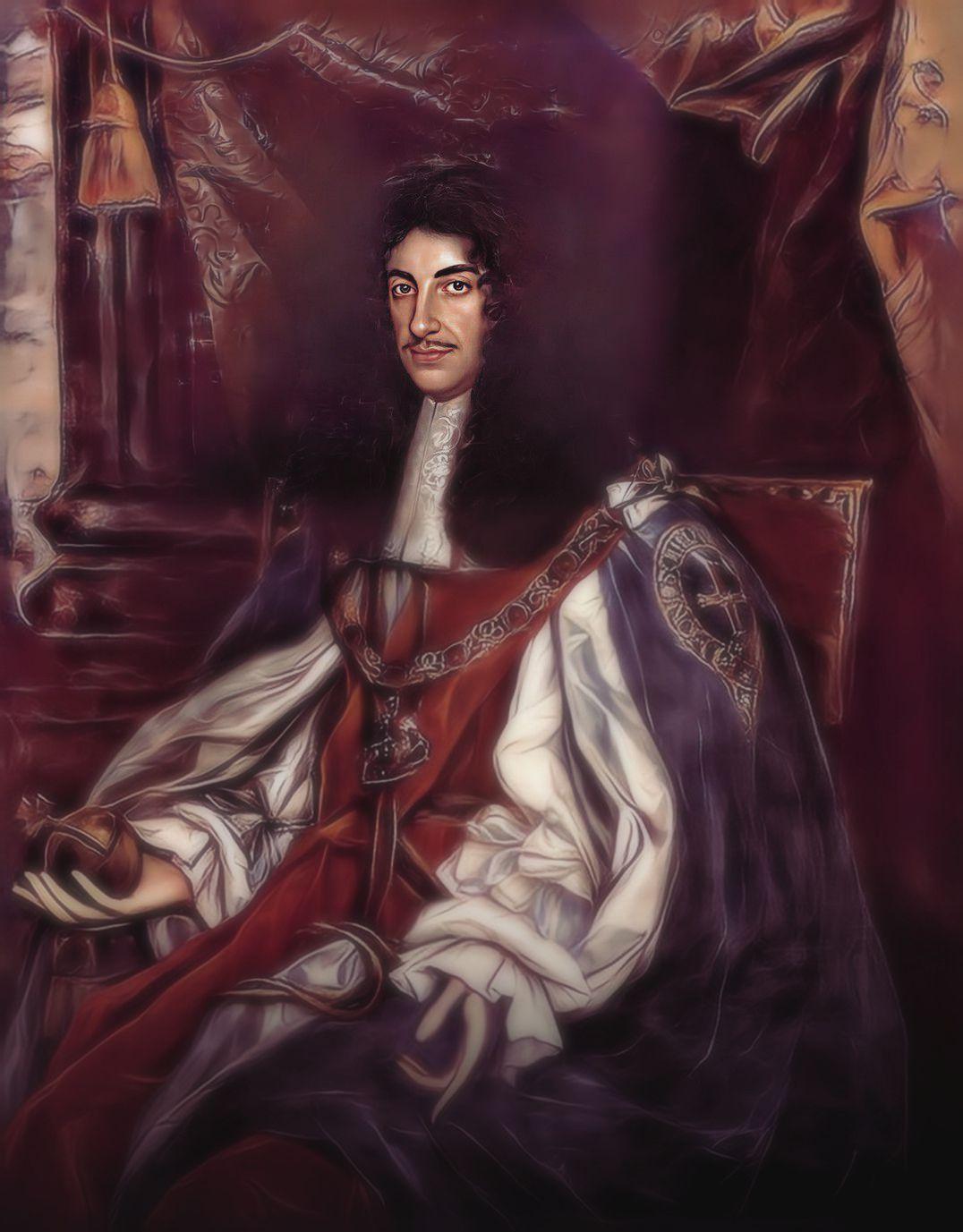What is the net worth of King Charles?
King Charles net worth is estimated to be US$ 500 Million.
| Net Worth | US$ 500 Million |
| Born | May 19, 1630 |
| Died | February 6, 1685 |
| Full Name | Charles II |
| Gender | Male |
| Height | 6′ 1″ |
| Horoscope | Gemini |
| Country of Origin | St James’s Palace, Westminster, England |
| Source of Wealth | Royal Finances |
| Marital Status | Married |
| Spouse | Catherine of Braganza (m. 1662) |
| Children | 17 |
| Nationality | English |
| Famous For | Being the king of England, Scotland, and Ireland during the 17th century. His reign was marked by conflict with Parliament, religious tensions, and ultimately his execution in 1649. |
King Charles: A Controversial Monarch in English History
King Charles II was King of Scotland from 1649 until 1651 and King of England, Scotland, and Ireland from the 1660 Restoration of the monarchy until his death in 1685. He was born in St James’s Palace, Westminster, England on May 19, 1630, the second child of King James VI and Anne of Denmark. His controversial policies led to his execution in 1649. His reign is considered a turning-point in English history.
Early Life and Education of King Charles
King Charles early life was marked by a turbulent political environment, with his father succeeding to the English throne in 1603. He was educated at home by private tutors, and his education was focused on religious and moral values. He was also taught of fencing, riding, and other sports.
Ascension to the Throne
King James death in 1625 paved the way for Charles’ ascension to the throne. He was crowned King of England, Scotland, and Ireland. Charles’ reign was marked by numerous conflicts, including religious disputes, economic challenges, and foreign policy tensions.
Policies and Reforms
King Charles policies and reforms were controversial, with many leading to conflicts and opposition. He implemented economic policies that favored the monarchy and aristocracy, leading to widespread discontent among the working class. He also pursued religious policies that favored the Anglican Church, leading to tensions with other religious groups. Additionally, his foreign policy was marked by conflicts with Spain, France, and the Netherlands.
Opposition to King Charles
Opposition to King Charles was widespread, with many religious, political, and economic groups voicing their dissatisfaction with his policies and reforms. The religious conflicts during his reign led to a significant split in the Anglican Church, with Puritans and other groups opposing the Church’s policies. Politically, Charles’ policies led to tensions between the monarchy and parliament, ultimately leading to the Civil War.

Execution of King Charles
The Civil War ended in 1649 with the capture of King Charles, who was put on trial and found guilty of high treason. He was executed on January 30, 1649, outside the Banqueting House in Whitehall, London. His execution led to a period of political instability in England, with the monarchy abolished and a republic established.
The lessons from King Charles reign
The reign of Charles taught many valuable lessons on the dangers and importance of authoritarianism, as well as the importance of political and religious freedom. His reforms and policies, especially those that favored monarchy and aristocracy showed the dangers and need for balanced government. His religious policies led to conflicts, which highlighted the need for religious tolerance and the dangers associated with religious discrimination.
Even those in positions of power should respect the rules of law and due process. The execution of King Charles showed that no one was above the law, and that people had the right to hold leaders accountable for their actions.
King Charles’s reign is a cautionary story about the dangers that come with unchecked powers and the importance of an accountable and balanced government.
Frequently Asked Questions about King Charles
Q. Why was King Charles executed?
A. King Charles was executed for high treason, as he was found guilty of trying to subvert the English constitution and impose authoritarian rule.
Q. Was King Charles a popular monarch?
A. King Charles was not a popular monarch, as his policies and reforms were controversial and led to widespread opposition.
Q. What were King Charles economic policies?
A. King Charles economic policies favored the monarchy and aristocracy, leading to widespread discontent among the working class.
Q. What was the significance of King Charles execution?
A. King Charles execution marked a turning point in English history, with the monarchy abolished and a republic established.
Q. What lessons can be learned from King Charles reign?
A. King Charles reign teaches valuable lessons about the dangers of unchecked power, the importance of religious and political freedoms, and the need for due process and the rule of law.
Conclusion
Charles was a controversial monarch whose policies and reforms led to widespread opposition and conflict. His execution marked a turning point in English history, with the monarchy abolished and a republic established. His legacy is still debated by historians and political analysts, with some seeing him as a martyr for the monarchy and others as a symbol of the dangers of authoritarianism.










